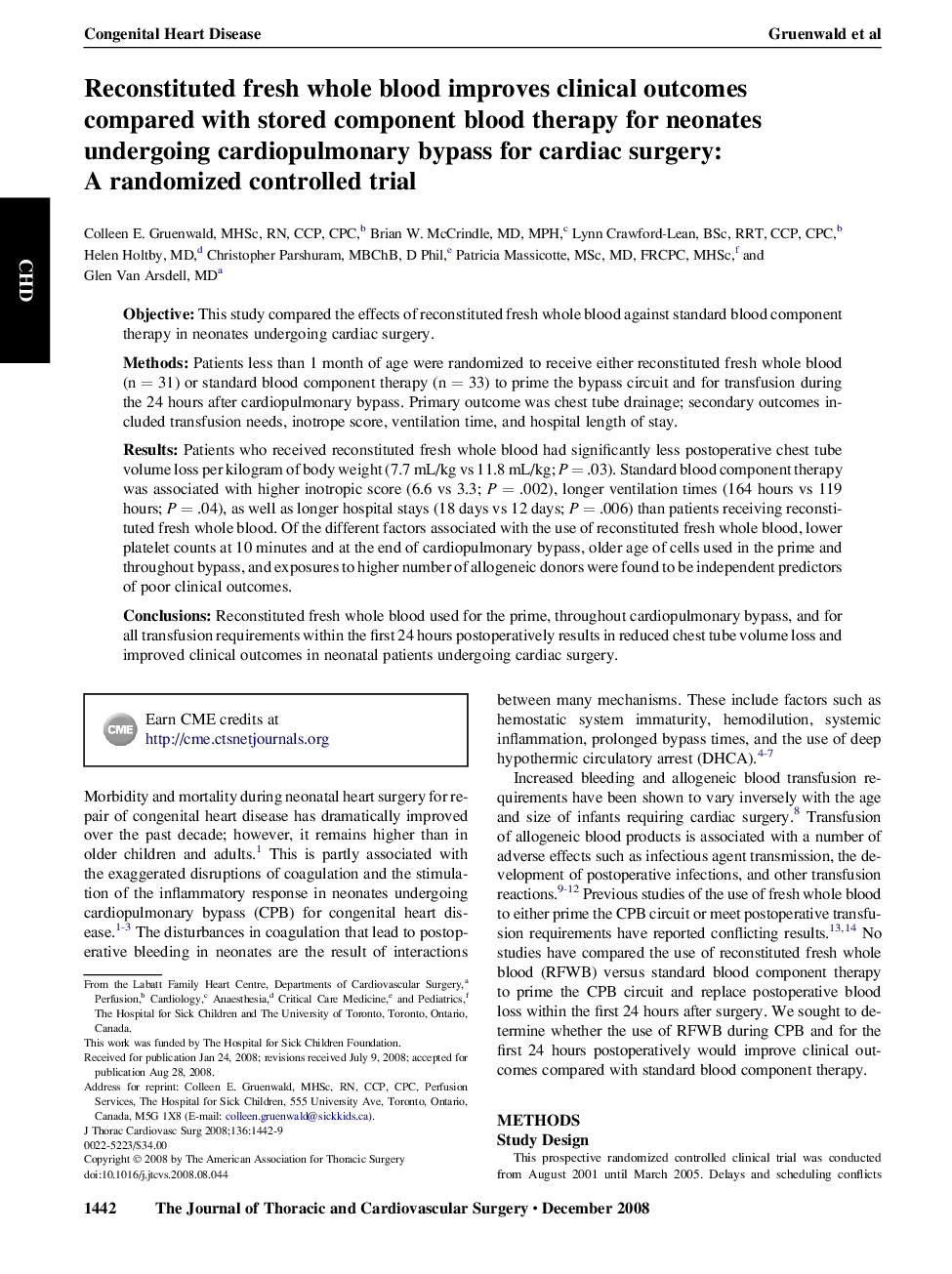| Article ID | Journal | Published Year | Pages | File Type |
|---|---|---|---|---|
| 2982433 | The Journal of Thoracic and Cardiovascular Surgery | 2008 | 8 Pages |
ObjectiveThis study compared the effects of reconstituted fresh whole blood against standard blood component therapy in neonates undergoing cardiac surgery.MethodsPatients less than 1 month of age were randomized to receive either reconstituted fresh whole blood (n = 31) or standard blood component therapy (n = 33) to prime the bypass circuit and for transfusion during the 24 hours after cardiopulmonary bypass. Primary outcome was chest tube drainage; secondary outcomes included transfusion needs, inotrope score, ventilation time, and hospital length of stay.ResultsPatients who received reconstituted fresh whole blood had significantly less postoperative chest tube volume loss per kilogram of body weight (7.7 mL/kg vs 11.8 mL/kg; P = .03). Standard blood component therapy was associated with higher inotropic score (6.6 vs 3.3; P = .002), longer ventilation times (164 hours vs 119 hours; P = .04), as well as longer hospital stays (18 days vs 12 days; P = .006) than patients receiving reconstituted fresh whole blood. Of the different factors associated with the use of reconstituted fresh whole blood, lower platelet counts at 10 minutes and at the end of cardiopulmonary bypass, older age of cells used in the prime and throughout bypass, and exposures to higher number of allogeneic donors were found to be independent predictors of poor clinical outcomes.ConclusionsReconstituted fresh whole blood used for the prime, throughout cardiopulmonary bypass, and for all transfusion requirements within the first 24 hours postoperatively results in reduced chest tube volume loss and improved clinical outcomes in neonatal patients undergoing cardiac surgery.
